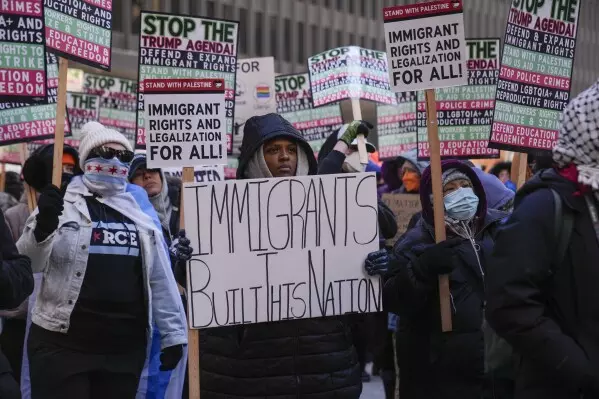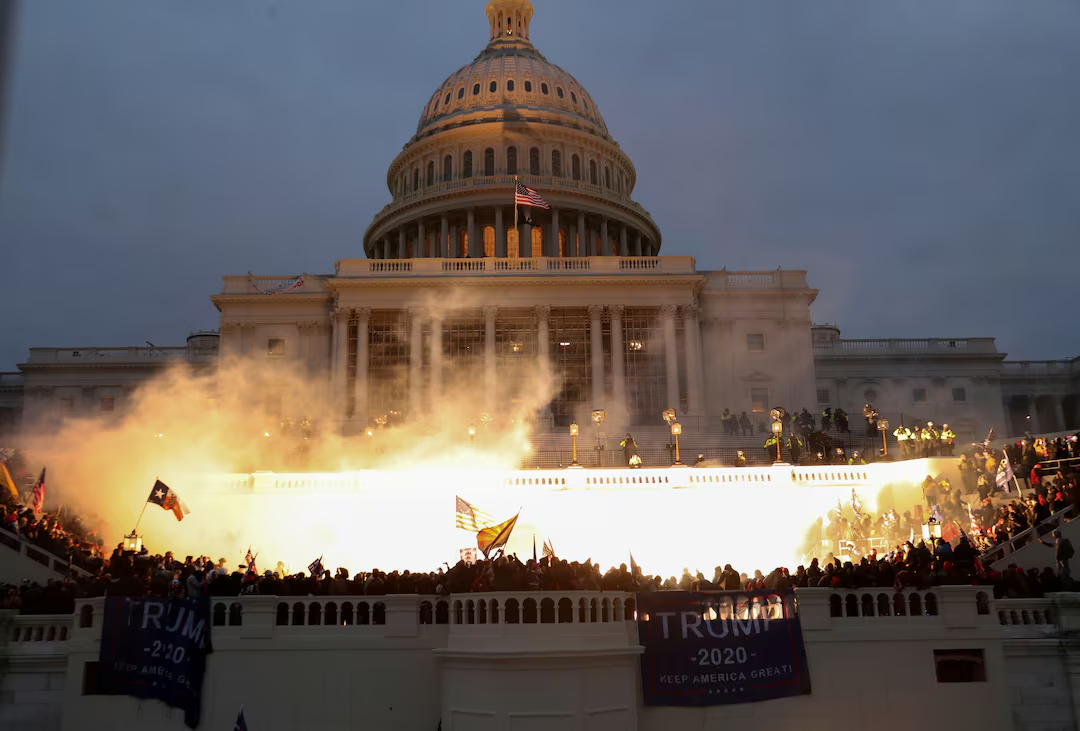
22 states sue Trump to block order ending birthright citizenship
text_fieldsProtesters rally for immigrant rights, racial equality, the Israel-Hamas war, and more during Trump’s inauguration, Jan. 20, 2025, in Chicago. (AP Photo)
Washington: Attorneys general from 22 states have filed a lawsuit to block President Donald Trump’s executive order ending birthright citizenship, a longstanding practice guaranteeing U.S. citizenship to anyone born on American soil, regardless of their parents' immigration status.
The executive order, issued late Monday, spans roughly 700 words and seeks to fulfill one of Trump’s campaign promises. However, its implementation faces uncertainty as legal experts predict a prolonged court battle over the constitutional right to citizenship and presidential authority on immigration.
Democratic attorneys general and immigrant rights advocates argue that the 14th Amendment unequivocally protects birthright citizenship and cannot be undone by presidential decree.
“The president cannot, with a stroke of a pen, write the 14th Amendment out of existence. Period,” said New Jersey Attorney General Matt Platkin.
In response, the White House dismissed the lawsuit as politically motivated. “Radical Leftists can either swim against the tide and reject the overwhelming will of the people or work with President Trump,” said deputy press secretary Harrison Fields.
Connecticut Attorney General William Tong, a U.S. citizen by birthright and the first Chinese American elected to the position, criticized the order, calling the issue deeply personal. “The 14th Amendment says what it means, and it means what it says — if you are born on American soil, you are an American. Period. Full stop,” Tong stated. “There is no legitimate legal debate on this question, but Trump’s actions still inflict immediate harm on families like mine.”
The 14th Amendment, ratified in 1868, guarantees that “all persons born or naturalized in the United States, and subject to the jurisdiction thereof, are citizens of the United States and of the state wherein they reside.” Trump’s order argues that children born to non-citizens or those in the U.S. temporarily are not subject to U.S. jurisdiction and therefore ineligible for citizenship.
The order outlines several exclusions:
- Children whose mothers were in the U.S. unlawfully and whose fathers were neither citizens nor legal residents.
- Children whose mothers were in the U.S. legally on a temporary basis and whose fathers were not U.S. citizens or lawful residents.
Federal agencies are instructed to withhold or revoke citizenship documents for individuals in these categories. The order will take effect on February 19, but it remains unclear if it would retroactively affect those already recognized as citizens.
The move challenges the global practice of birthright citizenship, also known as 'jus soli' or “right of the soil,” which the U.S. shares with around 30 other countries. Most nations confer citizenship based on parentage ('jus sanguinis') or legal residency requirements.
Opponents of the order argue it directly contradicts established law and poses a significant threat to American families and constitutional principles. Legal experts expect a fierce court battle, with the ultimate decision likely to rest with the U.S. Supreme Court.
With PTI inputs
























